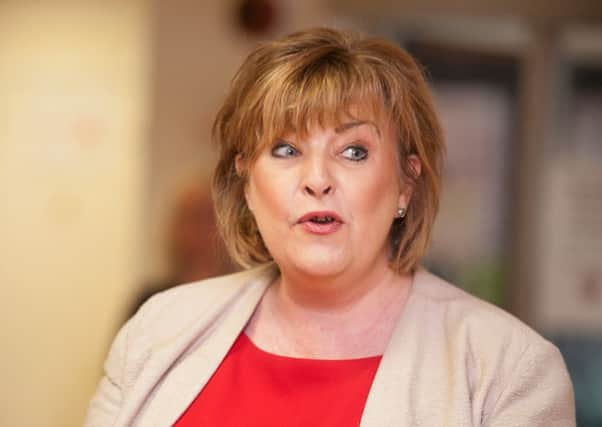Fiona Hyslop: Section 40 poses threat to press freedom


Fiona Hyslop called on the UK Government to “carefully consider” the impact its Section 40 proposals would have on both the media and democracy.
She confirmed the Scottish Government has no plans to bring in the changes north of the border, pointing out Scotland has its own distinct legal system and that press regulation is devolved.
Advertisement
Hide AdAdvertisement
Hide AdDespite this, she said the changes, contained within Section 40 of the Crime and Courts Act 2013, could damage Scottish local and national media if they are brought in by Westminster.
Ms Hyslop said: “Despite press regulation being devolved, Scottish local and national media could be impacted by any decision to enact section 40 in England and Wales, and it is my view that the measures consulted on by the UK Government would put at risk the viability of much of our independent media, particularly local newspapers, and pose a potential threat to freedom of the press.”
She stressed “Section 40 of the Crime and Courts Act does not apply under Scots Law” and added: “We have not introduced statutory measures to incentivise participation in the regulatory system, as has happened in Westminster, and I can confirm we have no plans to do so.”
She made the comments after Scottish First Minister Nicola Sturgeon said she did not support the implementation of Section 40 - which could see newspapers not signed up to an officially-recognised regulator pay the legal costs of both sides in libel and privacy actions brought against them.
Newspapers that are part of a recognised regulator would be exempt from the measures.
The proposals have divided opinion between those who believe the measures are ‘’fair’’ and those who fear they will severely limit the scope for newspapers to conduct investigative reporting to expose corruption and wrongdoing.
Advertisement
Hide AdAdvertisement
Hide AdMost newspapers have signed up to the Independent Press Standards Organisation (Ipso), the press-funded body which has not sought official recognition, and would therefore be faced with paying plaintiffs’ costs under the Section 40 provisions.
Ms Sturgeon told the Daily Record newspaper: “The behaviour that led to the Leveson inquiry on the part of elements of the media was despicable.
“The media have to learn those lessons and regulate their own behaviour.
“But that doesn’t take away from the vital importance of a free and questioning media, able to hold those in power robustly to account. Section 40 goes way, way too far in the wrong direction.
“I don’t think it’s an exaggeration to say it would threaten the viability of local newspapers. They could be sued by anybody for any reason with no fear of the consequences of losing.”
Ms Hyslop added: “Any movement by the UK Government to action Section 40 must carefully consider potential threats to the health of our democratic life and to the freedom of the press.”
The UK Government has carried out a consultation into the implementation of the Section 40 measures, which ended on 10 January.